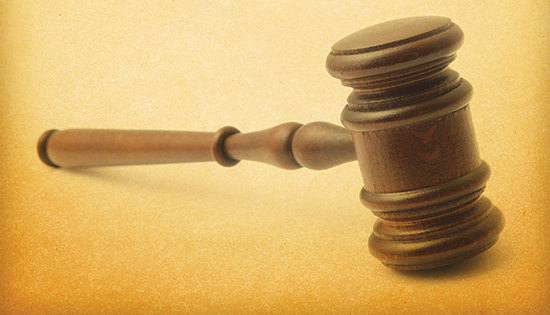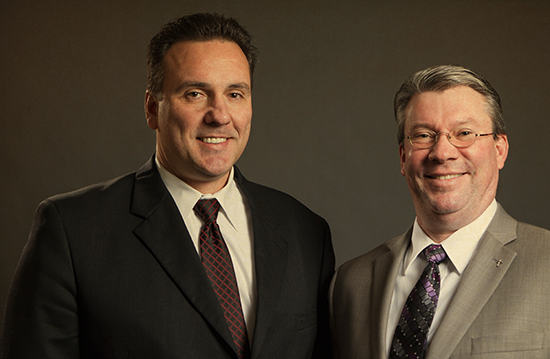
February-
March 2014
Life on Purpose
------------------
|

Cornerstone Conversation
Foundation Director David Brown sits down with Mike Wootton, president of Cornerstone Estate Planning, to talk about the importance of estate planning, avoiding probate, saving taxes, and being a good steward.
David: I already have a will. Why would I want a revocable living trust?
Mike: Contrary to what you’ve probably heard, a will may not be the best plan for you and your family, primarily because it does not avoid probate when you die. A will must be verified by the probate court before it can be enforced.
Also, because a will only goes into effect after you die, it provides no protection if you become incapacitated. So, the court could easily take control of your assets before you die, a concern for millions of older Americans and their families.
Fortunately, there is a simple and proven alternative, a revocable living trust. It avoids probate after you die and lets you keep control of your assets while you are living, even if you become incapacitated.
David: What exactly is probate?
Mike: Probate is the legal process by which the court pays your debts and distributes assets to your heirs after death. If you own property or timeshares in other states, your family could face multiple probates, each one according to the laws in that state. Other challenges of probate:
-
It takes time—months, years, and sometimes even longer. You really don’t know. Many assets cannot be distributed or sold without court approval.
-
Your family has no privacy. Probate is a public process, so any “interested party” can see what you owned and learn your creditors. The process to contest your will can expose your family.
-
Lack of control. The probate statutes determine how much it will cost, how long it will take, and what information is made public.
David: Doesn’t joint ownership avoid probate?
Mike: Not really. Joint ownership usually just postpones probate. With most jointly owned assets, when one owner dies, full ownership does transfer to the surviving owner without probate. But if the owner dies without adding a new joint owner, or if both owners die at the same time, the asset must be probated before it can go to the heirs.
Watch out for other problems. When you add a co-owner, you lose control. Your chances increase of being named in a lawsuit or losing the asset to a creditor. You can also encounter gift and/or income tax problems.
With some assets, especially real estate, all owners must sign to sell or refinance. If a co-owner becomes incapacitated, you could find yourself requiring court approval even if the incapacitated person is your spouse.

Photo: Mike Wootton (right) with business partner Troy Sadowski.
David: Why does the court get involved if someone is deemed incapacitated?
Mike: If you can’t conduct business due to mental or physical incapacities (Alzheimer’s, stroke, heart attack, etc.), only a court appointee can sign for you—even if you have a will. (Remember, a will only goes into effect after you die.)
Once the court gets involved, it usually stays involved until you recover or die. In these cases, the court, not your family, oversees how your assets are used to care for you. This public process can be expensive, embarrassing, time consuming, and difficult to stop if you recover. And it does not replace probate at death. Your family could have to go through the court system twice.
David: Does a durable power of attorney prevent this?
Mike: A durable power of attorney lets you name someone to manage your financial affairs if you are unable to do so. However, many financial institutions refuse to recognize this unless it is also on their form. And, once accepted, it may work too well, giving someone a “blank check” to do whatever he or she wants with your assets.
David: What is a revocable living trust?
Mike: A revocable living trust is a legal document that, like a will, contains instructions for what you want to happen to your assets when you die. Unlike a will, a properly written and properly funded revocable living trust avoids probate at death, can control all of your assets, and prevents the court from controlling your assets if you become incapacitated.
David: How is it possible for a revocable living trust to avoid probate and prevent court-controlled assets at incapacity?
Mike: When you set up a revocable living trust, you transfer assets from your name into the name of your revocable living trust, which you control. For example: “Bob and Sue Smith, husband and wife” to “Bob and Sue Smith, trustees under trust dated (month/day/year).”
For all intents and purposes you no longer own anything. Don’t panic! (Said with a smile.) Everything now belongs to your revocable living trust, which you control, leaving nothing for the courts to control when you die or become incapacitated. The concept is simple, but it will keep you and your family out of the courts.
David: Do I lose control of the assets in my revocable living trust?
Mike: Absolutely not! You keep full control. As trustee of your revocable living trust, you can do anything you could do before—buy and sell assets, change or even cancel your trust. (That’s why it’s called a revocable living trust). You pay income taxes the same way you always have. Nothing changes but the names on the title.
David: Is it hard to transfer assets into my trust?
Mike: Certainly it takes some time and energy to get things in order. But it is easier for you to do it now rather than sorting it all out through the courts, or putting your children through the agony of probate if something happens to you?
David: If something does happens to me, who has control?
Mike: If you and your spouse are co-trustees, either one of you can act and have instant control if one becomes incapacitated or dies. If something happens to both of you, or if you are the only trustee, the successor trustee you select will step in.
David: What does a successor do?
Mike: If you become incapacitated, your successor trustee looks after your care and manages your financial affairs as long as needed, using your assets to pay your expenses. If you recover, you automatically resume control. When you die, your successor trustee pays your debts and distributes your assets. All of this is done quickly and privately, according to instructions in your revocable living trust, without court interference.
David: Who can be successor trustees?
Mike: Successor trustees can be individuals (adult children, other relatives, or trusted friends) and/or corporate trustee. If you choose an individual, you should name more than one in case your first choice is unable to act.
David: Who should have a revocable living trust?
Mike: Age, marital status, and wealth really do not matter. If you own any titled assets and want your loved ones (spouse, children, or parents) to avoid court interference at your death or incapacity, consider a revocable living trust.
You may also want to encourage other family members to have one so you won’t have to deal with courts at their incapacity or death. Planning ahead, making the most of the assets God has given you…these are important elements of stewardship that everyone should take seriously.
|
|

